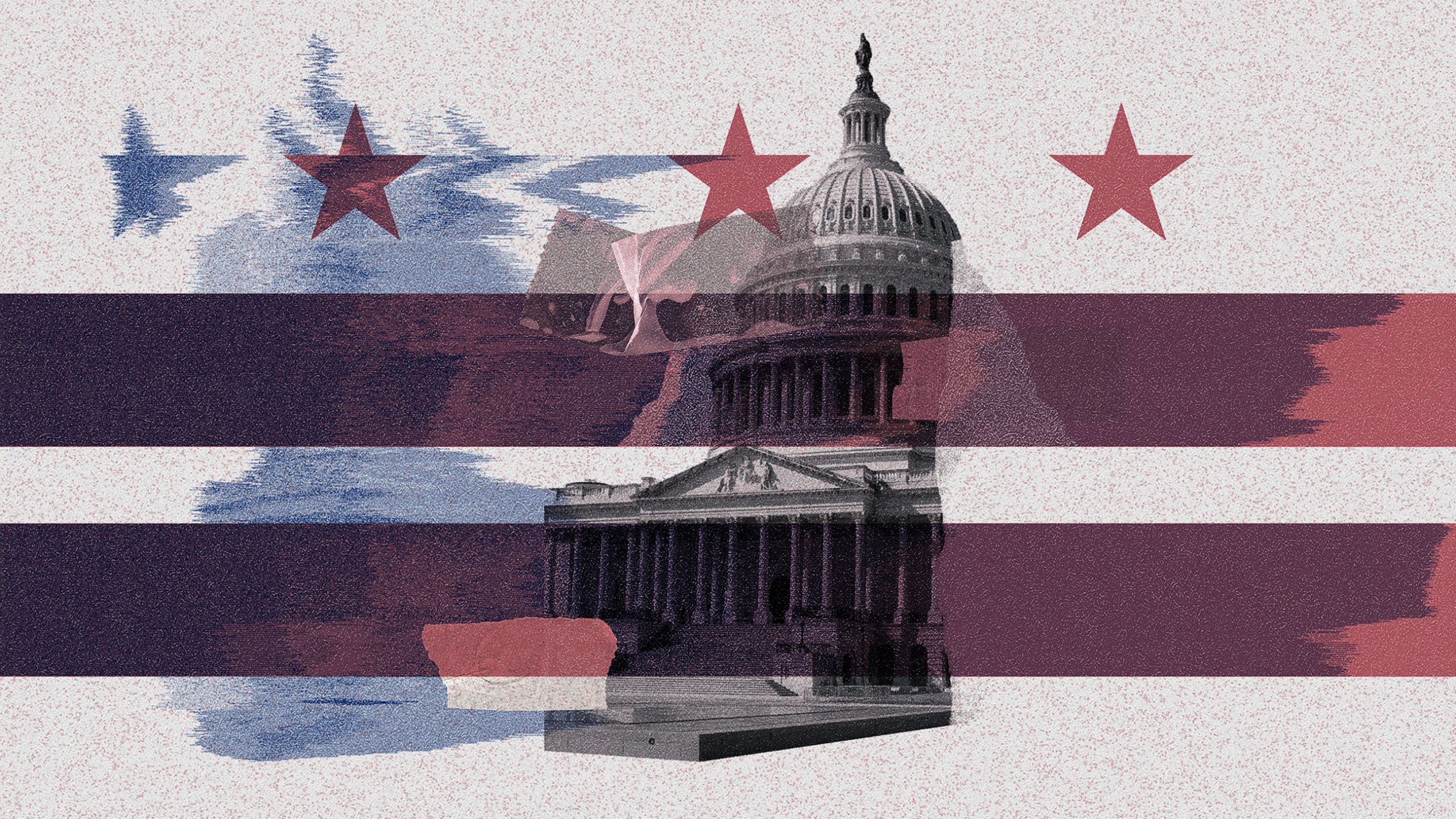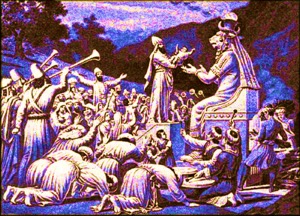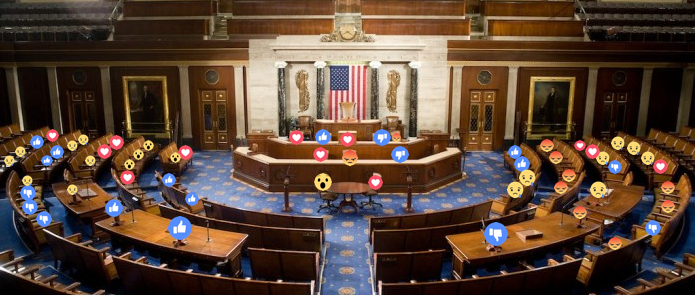If taxation without representation is the problem, Democrats don't seem interested in solutions.
Double Vision on Democracy

Narrative vs. reality in our two Americas
During the 2016 primary and general election seasons, “Dilbert” creator Scott Adams offered a useful heuristic for understanding America’s partisan and psychological bipolarity on Donald Trump. The two Americas were watching “two different movies”: one featuring a dangerous authoritarian and proto-fascist and the other a brash and plain-talking tribune sticking it to the corrupt uniparty establishment.
Americans, especially in and around “elite” institutions of culture, politics, and media, continue to watch two different movies. This is how we ought to view the latest demagoguery from one of our political parties and their most activist constituencies on the question of “voting rights.”
Kamala Harris and Joe Biden were in Atlanta on Tuesday to give speeches in support of abolishing the Senate filibuster in service of passing two bills, the John Lewis Voting Rights Advancement Act and The Freedom to Vote Act. The Vice President described the “two landmark bills” as responses to widespread “assault[s] on the freedom to vote,” and added that the legislation “represent[s] the first real opportunity to secure the freedom to vote since the U.S. Supreme Court gutted the Voting Rights Act nearly a decade ago.” With a nod to the increasing anxiety by Democrats over their prospects in this year’s midterm elections, she added, “we do not know when we will have this opportunity again.”
The President sought to tie opposition to both bills to a desire to perpetuate the legacy of segregation and suppress democracy. “Even [former segregationist] Strom Thurmond came to support voting rights. But Republicans today can’t and won’t.” Despite his razor thin electoral victory in 2020, a 50-50 Senate, and a narrow Democrat House majority, the President is talking like LBJ after his 1964 landslide. “The next few days, when these bills come to a vote, will mark a turning point in this nation’s history…. the issue is: will we choose democracy over autocracy, light over shadows, justice over injustice?”
The President’s speechwriters, thinking the Thurmond analogy a bit too indirect it seems, chose to open the final segment of the speech with its most dishonest and demagogic paragraph: “At consequential moments in history, they present a choice: Do you want to be … on the side of Dr. King or George Wallace? Do you want to be on the side of John Lewis or Bull Connor? Do you want to be on the side of Abraham Lincoln or Jefferson Davis?”
The Democrats, it’s clear, are watching a re-run from 1964/65. (Or perhaps even 1860, if we are to take that last line seriously—which nobody should.) Republican state legislatures have, across many states in recent months, passed legislation to roll back some of the extraordinary (and often, unlawful) suspensions of time-honored election integrity safeguards during the 2020 election. To the leaders of the Democrat party, this amounts to a return to the poll taxes, firehoses, and dogs of the segregated South.
To Republicans, the two “voting rights” laws would amount to a federalization of elections without precedent in American history. What’s more, it’s a solution in search of a problem. There is no crisis of voting rights in America. As anyone who has tried knows, it’s not very hard to vote in America. It requires a minimal amount of organization and planning, as so many civic duties do. Requirements like meeting deadlines, proving residency, and showing ID do not amount to voter suppression to most reasonable Americans.
To understand the source of this gap between leftwing narrative and reality, we do have to go back to 1964-65, it turns out. As my colleague Christopher Caldwell demonstrated in his recent book, Age of Entitlement: America Since the Sixties, the two movies our two different Americas are watching spring from two different conceptions of justice—two different Constitutions.
The 1964 Civil Rights Act and the 1965 Voting Rights Act were meant finally to fulfil the promise of the Declaration and restore equal protection of the laws and equal access to the vote to black Americans. Both bills, in the hands of executive and administrative state agencies and propelled by a series of court decisions, were quickly turned into vehicles for desired outcomes rather than neutral or colorblind process. Regardless of intent, if given policies or laws (or even a constellation of private-sector activities and commerce) resulted in different outcomes for different groups, the only culprit could be discrimination. The legal term for discrimination-based unwelcome outcomes is “disparate impact.”
Whereas the American Founders and many generations hence thought that individual and group differences in outcomes the inevitable result of human diversity and freedom, starting in the 1960s the American regime and Constitution started to regard any differences in outcome as the dark legacy of slavery, Jim Crow, and a host of other identity-inflected oppressions.
“Voting rights” is an issue super-charged by the still-fresh dispute over the contested 2020 election, to be sure, but the dispute between our two Americas over justice vs. injustice, oppressor vs. oppressed, and “our democracy” vs. “authoritarianism,” etc., rests on this intractable gap between our two Constitutions. As my colleague Charles Kesler has argued, we’re in a rolling era of “regime politics,” in which high questions of justice and ways of living are contesting with one another rather than mere policy disagreements.
And so, our rolling constitutional crisis and its confusing and hyperbolic rhetoric will continue, especially on all issues plausibly or even tenuously connected to “rights” or “democracy.” The very nature and substance of the two terms is precisely what’s at issue. The prospects of this crisis abating any time soon are slim, given the partisan gridlock and narrow majority-trading we’ve seen over the last 30 years of American politics. The resolution of the crisis will only come when one of the two parties, or some American political movement still in embryo, wins decisively this fight over justice and the American way of life and dominates our politics for a generation. Until then, this is our new normal.
The American Mind presents a range of perspectives. Views are writers’ own and do not necessarily represent those of The Claremont Institute.
The American Mind is a publication of the Claremont Institute, a non-profit 501(c)(3) organization, dedicated to restoring the principles of the American Founding to their rightful, preeminent authority in our national life. Interested in supporting our work? Gifts to the Claremont Institute are tax-deductible.
Today’s fraudulent multiculturalist faith fragments society—and fractures the psyche.
The Future of American Government?



